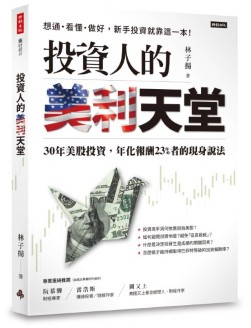Company Profile
Date of establishment
Y Combinator (YC for short) was established in March 2005. It is a venture capital company that invests in seed-stage startups.
Founders
Founded in 2005 by Paul Graham and Jesica Livingston, they initially established an Entrepreneur School.
Business model
As an accelerator for new startups, Y Combinator mainly provides new startups with $500,000 in seed funding, guidance and resources to help early-stage startups succeed. The goal is to help new startups significantly improve product and user growth, and increase options for raising additional funds.
A group of entrepreneurs joined the YC incubation group. They worked in an open office space, participated in three months of lectures and mentoring, and finally received graduation results.
The importance of Y Combinator
YCombinator’s track record of discovering and nurturing successful startups is unparalleled in the technology industry. Their selection process consistently uncovers companies that go on to reshape entire industries, so their portfolios become valuable indicators of emerging trends and technologies.
Differences from VC peers
Incubator for new startups
The biggest difference from traditional venture capital firms is that Y Combinator is more like an “incubator” for new startup teams and a “training camp” aimed at nurturing startups; they not only provide startups with a certain amount of seed funds will be provided to them, and they will be given entrepreneurial advice, as well as three-month “courses” held twice a year to allow participating entrepreneurial teams to enhance their execution capabilities.
Fixed fee
Y Combinator takes an average of 6% of a startup’s total net worth in return.
YC opens up VC’s black box
The second major shift in the startup ecosystem is the emergence of business incubators. YCombinator (abbreviated as YC, a famous American startup incubator),
Famous companies YC invested?
In the past 13 years, YC has incubated nearly 1,600 potential startups, including some very famous and successful companies, such as:
- Airbnb (Airbnb, the world’s leading short-term rental platform), please see my post of “Airbnb’s unique offering is competitive“
- Bitcoin Company Coinbase, please see my post of “How do Coinbase and Binance make money? Advantages comparison“
- Instacart (online grocery store)
- Dropbox (Dropbox, cloud storage service provider)
- Stripe (digital payments provider)
But this is not YC’s most important impact on the venture capital ecosystem. On the contrary, I think the importance of YC is that it teaches a large number of entrepreneurs how to start a business. Among them, how to raise funds from venture capital companies is a very important lesson. In other words, YC cracked the “black box” of the venture capital industry, revealed the inside story of the venture capital industry, and showed entrepreneurs the creation and financing process of start-up companies.
In addition, YC has created a real community of entrepreneurs. In the community, entrepreneurs can share their knowledge and insights, whether it’s about building their companies or their experiences working with VCs. Prior to this, the entrepreneurial community was very fragmented, and knowledge sharing among community members was obviously extremely limited. The power brought by knowledge is becoming the second important factor in balancing entrepreneurs and venture capital companies.
OpenAI’s Sam Altman
Sam Altman, the CEO and co-founder of OpenAI, was once the CEO of Y Combinator. Later, he resigned as CEO of Y Combinator and concentrated on running OpenAI because he was really unable to do anything else.
For OpenAI, please see my post of “OpenAI, the Generative Artificial Intelligence rising star and ChatGPT“

Related articles
- “How is Y Combinator different from other venture capital firms?“
- “a16z’s “Secrets of sand hill road” to investors and entrepreneurs“
- “Don Valentine, founder of Sequoia Capital, father of Silicon Valley Venture Capital“
- “Startup issues that most people care about“
- “Angel is an excellent venture capital book for ordinary people“
- “Two famous essays by Marc Anderson on software and artificial intelligence“
- “Zero to One“
- “Venture capital and unicorns introduction“
- “Global Venture Capital and Unicorn Report“
- “Traitorous Eight, the origin of the semiconductor and venture capital industries“
- “Venture capital and unicorns introduction“
- “Global Venture Capital and Unicorn Report“
- “The Power Law“
- “OpenAI, the Generative Artificial Intelligence rising star and ChatGPT“
- “How do Coinbase and Binance make money? Advantages comparison“
- “Airbnb’s unique offering is competitive“
Related books
If you want to know more about and Peter Thiel, his companies and startups, you can refer to the following three other books by PayPal Mafia members that are influential in Silicon Valley and the venture capital community:
- “Zero to One“
- “The Hard Thing About Hard Things” by A16Z co-founder Ben Horowitz.
- “PayPal Wars” by former PayPal executive Eric Jackson
- “The Alliance” by former deputy general manager of PayPal and founder of LinkedIn Reid Hoffman
Note:
After Reid Hoffman sold LinkedIn, which he founded, to Microsoft, he founded a well-known artificial intelligence startup, Inflection.ai, and is currently focusing on running this company.
Disclaimer
- The content of this site is the author’s personal opinions and is for reference only. I am not responsible for the correctness, opinions, and immediacy of the content and information of the article. Readers must make their own judgments.
- I shall not be liable for any damages or other legal liabilities for the direct or indirect losses caused by the readers’ direct or indirect reliance on and reference to the information on this site, or all the responsibilities arising therefrom, as a result of any investment behavior.
